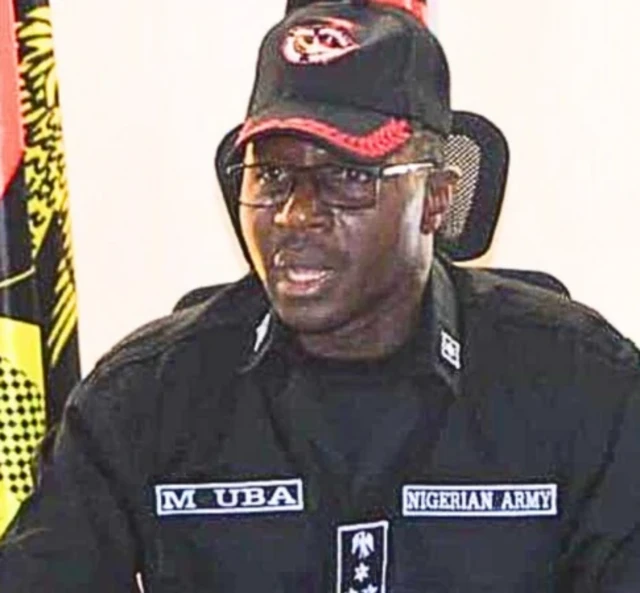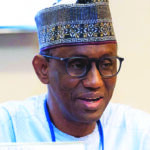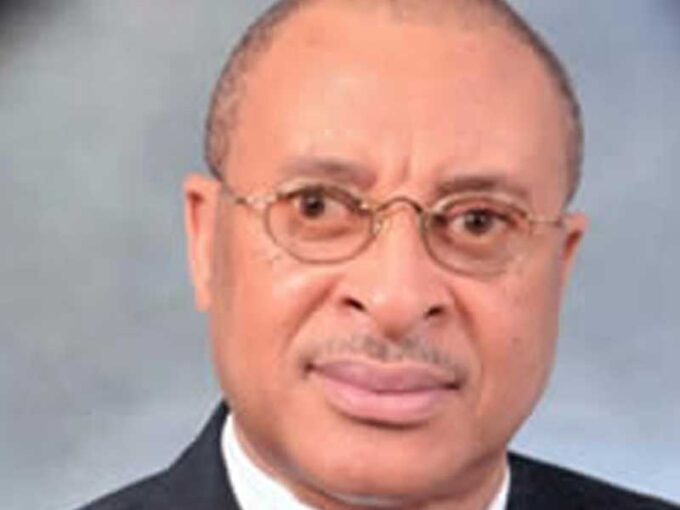The recent capture and execution of the Brigade Commander of the 25 Task Force Brigade, Brig. Gen. Musa Uba by ISWAP terrorist group, the mass abductions of students in Kebbi and Niger states, the attack on a church in Kwara State and the kidnapping of a Catholic reverend father, Bobbo Paschal, in Kaduna, will send a wrong impression of terrorists winning the war against the Nigerian state, unless political leaders de-emphasise their 2027 political ambitions and mobilise the military to respond with unrestrained force, Ejiofor Alike reports
The killing of the Brigade Commander of the 25 Task Force Brigade of the Nigerian Army, Brig. Gen. Musa Uba at the Damboa-Biu axis in Borno State by the fighters of the Islamic State of West Africa Province (ISWAP), has exposed the weaknesses of the military in the war against insurgency, particularly as it concerns intelligence gathering.
His death was a sad reminder of the previous killing of the Brigade Commander of the 28 Task Force Brigade in Chibok, Brigadier-General Dzarma Zirkushi in a similar ISWAP ambush on November 13, 2021.
Both 25 and 28 Task Force Brigades shared boundaries.
Zirkushi and seven soldiers fell to ISWAP ambush while he was leading reinforcements to Askira-Uba Local Government Area (LGA) of Borno State.
Uba was killed with four soldiers and two civilian JTF.
Before Zirkushu was killed, the highest-ranking army officers killed by terrorists in the North-east were colonels.
The Commander of the 25 Task Force Brigade of the Nigerian Army, Damboa, Colonel Dahiru Bako, was killed by Boko Haram terrorists in September 2020, while the Commanding Officer of the Chief of Army Staff Mobile Intervention Battalion in Borno, Col. Hussaini Samaila Sankara died in July 2021 following the injuries he sustained when his vehicle ran into a landmine of Boko Haram.
With enough prior intelligence before the mission, Uba and his men would not have been trapped between two notorious dense forests, a known ISWAP crossing route.
Military analysts believe that had there been prior intelligence gathering and adequate war equipment – gun trucks, anti-aircraft guns, Armoured Personnel Carriers (APCs), Mine-resistant Ambush Protected (MRAP) vehicles and flank cover – no ugly situation could have warranted the senior military officer to be stranded alone in the forest, waiting to be captured by ISWAP.
Though he survived the initial ambush at Wajiroko and established communication with the Theater Command in charge of Operation Hadin Kai fighting insurgency in the North-east, the rescue operation by ground troops and air support were not swift and decisive enough to rescue him.
Few hours after the military had announced that he survived the ambush, the terror group announced that they had killed him.
It attached a picture of the General showing when he was in office and when he was “captured.”
ISWAP taunted the Nigerian Army, describing its statement that Uba was safe as an “outright lie and a miserable security failure.”
While there were speculations of possible interception of the military’s communication network, which led the terrorists to track his location, many also not ruled out the possibility of the existence of moles among the troops.
There is no doubt that the killing of the Brigade Commander, may have blighted the federal government’s usual claim that it is winning the war against insecurity in the country.
With the near-simultaneous abduction of 25 female students in Kebbi State, the attack on ECWA church in Kwara State, and the abduction of a Catholic priest in Kaduna State, the terrorists are becoming increasingly bold and audacious.
Five days after the Kebbi School attack, terrorists in the early hours of Friday, stormed St. Mary’s Papiri Private Catholic Secondary School, Papiri, in Agwara Local Government Area of Niger State, abducting several students and teachers.
Many analysts blame the political leaders’ undue attention to the politics of 2027 for the worsening security challenges.
According to analysts and opposition leaders, political leaders are more obsessed with their 2027 ambitions and defections than mobilising soldiers to tackle insecurity.
In a statement released through his official X page on Monday, former Vice President Atiku Abubakar described the tragedy as “unequivocally a failure of political leadership.”
Atiku accused President Bola Tinubu of prioritising political battles over his responsibilities as Commander-in-Chief of the Armed Forces.
Also reacting to the multiplicities of tragic terror attacks across the country, the presidential candidate of the Labour Party in the 2023 general election, Mr. Peter Obi, bemoaned what he described as the apparent insensitivity of the government.
Obi wondered why, amid the gloomy picture created by insecurity, the struggle to destroy opposition parties should be paramount to the government and their agents.
On his part, a former Minister of Transportation, Mr. Rotimi Amaechi, in a Facebook post, said the frequency and scale of recent assaults have weakened public trust in the government and emboldened terror groups.
He said the attacks on communities in Plateau, the killing of the General and the incidents in Kwara and Kaduna states all within a week, were “too much to be ignored”.
“The government has failed to provide adequate protection for its citizens, as evidenced by the surge in terrorist attacks and mass kidnappings in some parts of the country – challenging our national security,” Amaechi said.
“To Mr. President: your primary assignment is the security of lives and property,” he said.
The former Rivers State governor added that government must “probe wrong decisions, strategise and make tough calls”, strengthen military intelligence, and sharpen response to terrorist activities.
However, despite what seems like a worsening insecurity, the Governor of Borno State, Prof. Babagana Zulum, on Wednesday said the security situation in the state has significantly improved, declaring that “the worst is over.”
The governor’s latest remark came barely 24 hours after he had appealed to the Nigerian Armed Forces on Tuesday to launch an urgent, full-scale offensive against terrorist strongholds in the Tumbus Islands of Lake Chad, the Mandara Hills and the Sambisa Forest
But speaking during a meeting with the Chief of Army Staff, Lieutenant General Shuaibu Waidi, in Maiduguri, Zulum stated that compared to the peak of the crisis years ago, the current security landscape, despite recent setbacks, shows significant improvement.
“Yes, we have witnessed a series of attacks on our communities and the security forces, but the worst is over; we shall continue to collaborate and provide the needed intelligence to our security forces to bring this madness to an end,” Zulum said.
“The frequency and scale of attacks on our communities then were overwhelming. Today, while we grieve any single setback, we can also see that the worst is indeed behind us. The trajectory is toward peace, and we are committed to sustaining it,” he added.
Many believe the security situation would have been much better if political leaders had not focused much attention on the 2027 general election, leaving the earlier gains recorded in fighting insecurity to be eroded.


















Leave a comment